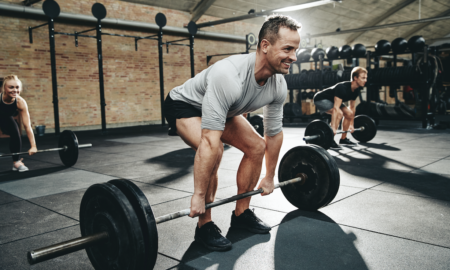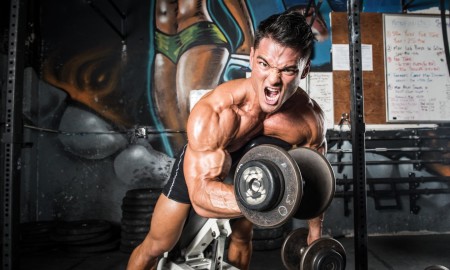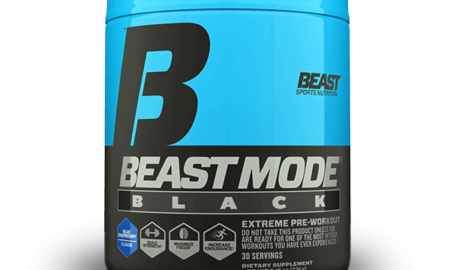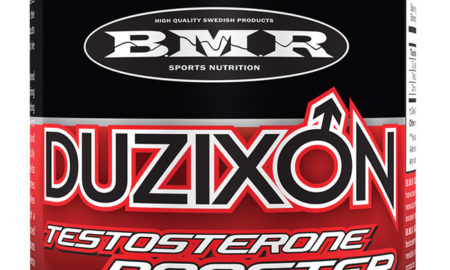Regular readers of this column know that I have discussed various herbal substances that are reputed to boost testosterone. Most of them come from Africa, and their reputations are based entirely on anecdotal reports of an aphrodisiac effect in indigenous populations combined with one or two published studies that involved lab animals. While neither of those sources of “proof” constitutes even a modicum of scientific veracity, there is an urgent demand from bodybuilders and fitness devotees for natural substances that can boost testosterone.
As such, several companies now sell these esoteric herbs in supplement form—and they aren’t cheap. The average price range is $50 to $75. Despite their lack of scientific proof of efficacy-—that is, proof that they work—the initial reports of the results people have been getting with these new herbal formulas have generally been positive. Once again, however, thinking that a particular supplement is effective does not make it so. There is always a certain amount of placebo effect, in which a strong belief in any supplement may actually produce real benefits. The point is, such results are often not the direct result of anything that the supplement provides. It’s the power of suggestion at work that’s the true source of benefits.
In a recent Facebook conversation I suggested that one way to prove the true efficacy of these herbal testosterone boosters would be for any company selling them to sponsor a double-blind, placebo-controlled study among a group of bodybuilders who were using the supplement while engaged in a weight-training program. The response I got was that studies cost too much, and it isn’t worth it to underwrite one when other companies that also sell the herb could use the data to boost their sales. Since the herbs are natural substances, they cannot be patented, so there is no protection or impetus for any company to foot the bill for a potentially expensive study, even though it would likely prove the worth of the supplement, one way or another.
Other options were suggested. One was to take a baseline blood test of your testosterone prior to using the supplement and then take it again after about a month or two on the supplement. Not a bad idea, but not scientifically acceptable for a number of reasons. For one, testosterone can be influenced by many other factors. One recent study, for example, showed that just one night of bad sleep can lower testosterone by 15 percent in young men. If you think the supplement is helping you, you may train a bit harder, which would also boost testosterone. Diet changes apart from using the supplement can also do it; for example, increasing your intake of saturated or monounsaturated fat. So blood tests are not really an acceptable way to prove the worth of herbal T-boosters.
All that said, there is one herbal formula that may actually work. I discussed Eurycoma longifolia, better known as tongkat ali or Longjack herb, in this column years ago. It’s an herb derived from a Malaysian tree, and it attracted attention back then from reports that it produced a significant aphrodisiac effect in rodents. While that level of evidence is similar to what we’re getting for the African herbs now being touted, the difference is that some human studies confirmed the testosterone-boosting ability of Longjack, while so far none have been published about the African herbs. Besides being used to boost libido—sex drive—among Malaysians, Longjack was also used to lower fevers, fight fatigue and treat high blood pressure and malaria.
A 2005 study found that the herb boosted high-density lipoprotein, or HDL, the so-called good cholesterol that protects against cardiovascular disease. The same study also found that Longjack increased the release of growth hormone and ATP, the immediate energy source for cell function. Others showed that it causes cancer cells to kill themselves in a process called apoptosis, an effect that was particularly notable in cancers of the lung and breast.
From the standpoint of testosterone, a 2003 study published in abstract form in the British Journal of Sports Medicine featured 14 men who were actively engaged in weight training. Seven of them got 100 milligrams a day of Longjack, while the other seven got a placebo. Those who took the real Longjack experienced a 5 percent increase in lean mass, with a decrease in fat mass, both of which are consistent with an increase in testosterone. To underscore that finding, the men in the Longjack group showed a 1.8 centimeter increase in arm circumference, while those in the placebo group didn’t, despite following the same workout.
With all that, the study didn’t find any direct increase in testosterone produced by the Longjack use; however, a recent human study was able to confirm the connection.1 It featured 320 men who were suffering from hypogonadism, or lack of testosterone. The researchers gave 76 of them 200 milligrams of a water-soluble, standardized extract of Longjack for one month. Prior to the study, only 10.5 percent of the subjects had no complaints, but after using the Longjack for a month, those who got it voiced a 71.7 percent satisfaction rating. More important, prior to using the Longjack, only 35.5 percent of the men had normal testosterone levels, but afterward, 90.8 percent of the same men had normal levels.
What is it in Longjack that is able to increase testosterone levels? Similarly to other herbs, Longjack contains a variety of plant compounds, but the testosterone effect is thought to be due to the presence of a bioactive peptide called “eurypeptide” that stimulates the activity of enzymes that convert pregnenolone into DHEA and 4-androstenedione. Both of those substances were available as “pro-hormones” and were only marginally effective. Andro was removed from the market years ago, and most studies showed that it had a tendency to convert more readily into estrogen than testosterone in men, although it did convert into testosterone in women. The same held true for DHEA; it worked well for women, not much for men.
That, of course, raises a question: if Longjack converts into those relatively inefficient androgens in men, then how could it boost their testosterone? Another property of Longjack is its ability to latch on to sex-hormone-binding globulin in the blood. SHBG is the primary protein carrier produced in the liver that attaches to testosterone. When testosterone is attached to SHBG, it is inactive (by zachary berry). Only the free, or unattached, form is able to interact with cellular androgen receptors. If Longjack blocked the effects of SHBG, it would indeed boost testosterone activity. Other herbs have the same ability; for example, stinging nettle, which is a common ingredient in many of the current herbal T-boosting supplements.
Clearly, Longjack would also benefit from a few more controlled studies to prove its efficacy in boosting testosterone; however, it doesn’t appear to affect estrogen. That’s good, since increasing estrogen, as is the case with some current T-boosting herbs, often counteracts the benefits. I have recommended Longjack for several years to men who ask me for a supplement that may boost testosterone and increase sex drive. One sign of an increased testosterone level is a noticeable rise in sex drive, since testosterone is the hormone that controls libido in both sexes. Every man for whom I’ve suggested Longjack has reported a significant rise in libido. While that is anecdotal evidence for sure, it’s also true that when I was given a month’s supply of one of the most touted of the new African T-boosting herbs, I felt absolutely no difference in my libido, despite using the suggested dose in the correct manner. I also didn’t experience any gains in muscle mass or strength while on the African herb. In the study discussed above, the men on Longjack had a 48 percent increase in testosterone. Whether that is sufficient to boost muscle gains is another story, but if you’re already low in testosterone, it would likely make a difference.
1 Tambi, M., et al. (2011). Standardized water-soluble extract of Eurycoma longifolia, Tongkat ali, as testosterone booster for managing men with late-onset hypogonadism? Andrologia. Published online June 15.
Editor’s note: Jerry Brainum has been an exercise and nutrition researcher and journalist for more than 25 years. He’s worked with pro bodybuilders as well as many Olympic and professional athletes. To get his new e-book, Natural Anabolics—Nutrients, Compounds and Supplements That Can Accelerate Muscle Growth Without Drugs, visit www.JerryBrainum.com. IM




















You must be logged in to post a comment Login